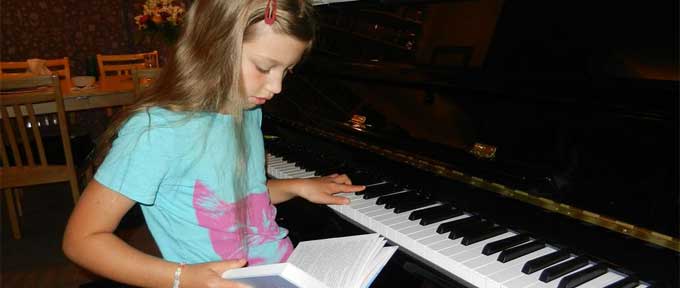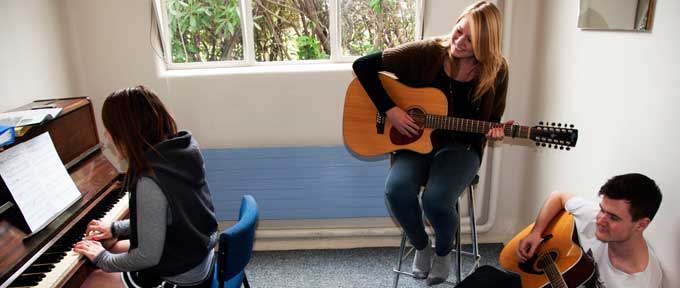What to practice?
Always make sure that you are covering the work your teacher has set you. Keep a practice diary where both your teacher and you can make notes to help remind you of the repertoire you are to work on between lessons.
At the start of your practice session, it is good habit to begin with a warm up using scales and arpeggios. Start with the ones which are familiar to you and continue by moving on to less familiar or new ones. Keep practicing old scales and arpeggios once you have learnt them to keep them fresh.
When working on your pieces, try to identify the difficult passages that need extra work. You may need to play very short phrases over and over many times, so set yourself a goal of perfecting just a few bars during each practice session. This is a more effective way of learning a new piece, since playing a piece through from the beginning to the end is only really beneficial once the piece is already polished.
Alongside practicing your pieces and scales, try your hand at improvising, sight-reading new pieces or revisiting old pieces you have previously learnt. Most importantly, try to use your practice time productively.
Support from parents
Practicing is a lonely activity and a lot of children benefit from encouragement and support from their parents. Parents’ company and praise is especially useful in the early stages. Take an active interest in your child’s playing and try to periodically sit in and listen to their practice sessions. Create opportunities for your child to perform by playing to family or friends. Perhaps ask your child to teach you something they are currently working on in their lessons?
I hope that these suggestions will be useful to students and parents and that they will help to establish habits through which good progress can be made.
Li Boberg trained at the Guildhall School of Music and Drama in London and at the Royal Academy of Music in Copenhagen. She is currently teaching around Berkshire and she freelances as a double bassist with many of the UK’s major orchestras




 As an instrumental teacher I am often asked by parents how much time their child should spend practicing between lessons. When taking up an instrument it is important to create good habits of practice from the beginning therefore I have put together some suggestions which I hope will be helpful:
As an instrumental teacher I am often asked by parents how much time their child should spend practicing between lessons. When taking up an instrument it is important to create good habits of practice from the beginning therefore I have put together some suggestions which I hope will be helpful: